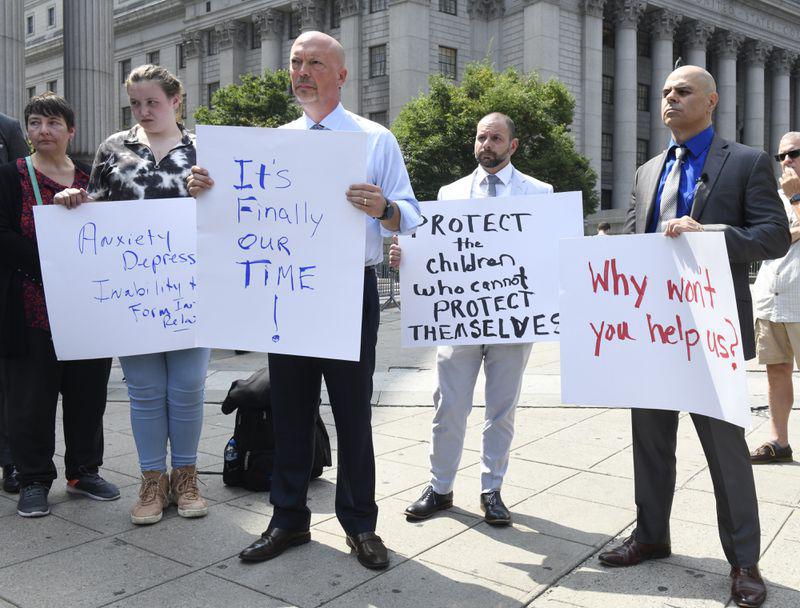|
Here come the diocese ‘bankruptcies’: How New Yorkers seeking justice under the Child Victims Act should approach new pleas of poverty
By Brad Hoylan, Linda B. Rosenthal And Marci A. Hamilton
For years, we’ve fought hard for the Child Victims Act (CVA), transformative legislation that is already helping survivors secure justice while increasing transparency for the public. Both are sorely needed to end the epidemic of child sexual abuse. In the process of passing this legislation, we heard from many large, well-funded institutions that lobbied against the legislation claiming that they’d go bankrupt if the CVA were to pass. Now that the CVA is the law, one such institution — the Rochester Diocese — has filed for bankruptcy and others may well follow. (The Rockville Center Diocese is suing to have the law overturned entirely.) In order to truly help survivors of child sexual abuse, it’s important to get the facts straight about how bankruptcy proceedings would impact their cause. First, the institutions that are threatening bankruptcy aren’t short of funds. The Rochester Diocese filed a federal Chapter 11 action, which exists for the purpose of protecting assets. It did not file a Chapter 7 proceeding, which occurs when an entity is broke. In other words, the Rochester Diocese is attempting to shortchange survivors and frustrate justice. That is wrong, especially after survivors spent so long fighting in Albany for their opportunity to access justice. Judges who oversee these cases should treat institutions filing for bankruptcy just like any other debtor by demanding absolute transparency about their holdings. Doing so will help survivors get a fair shot in court. Federal tax law permits religious entities like the Catholic Church to maintain non-profit status with the privilege of keeping their financials secret. The upshot is that many of these non-profit entities rarely disclose to the public their actual worth. When the San Diego Diocese filed for bankruptcy following the implementation of California’s statute of limitations window, which was open during 2003, it kicked off the proceedings with an egregiously undervalued statement of assets. The federal judge ordered a forensic accountant to investigate the diocese’s actual value. The accountant discovered that the diocese owned property with extraordinary value, including an empty lot in downtown San Diego. After that revelation, it didn’t take long for the diocese to exit bankruptcy court and settle with the survivors on fairer terms based on its actual wealth. Financial transparency worked in California, and it will work in New York. Every bankruptcy proceeding must begin with a forensic accountant documenting for the court the true holdings and values of the debtor. Second, federal bankruptcy law is a blunt tool that was made to serve for-profit industries — not survivors of child abuse dealing with trauma. The process is made to focus on the institutions that are filing, regardless of the abuse they may have enabled. Rarely is there an opportunity for survivors to speak out for their own justice. Instead, they are transformed into a generic “Creditors Committee.” This opaque process invites attempts to game the system. For example, the Milwaukee Diocese moved most of its assets into a so-called “cemetery trust” to shield its assets from survivors. The financial maneuvering did not hold up in court, but we have no doubt that institutions in New York, including the dioceses, have been moving assets around over the 16 years that they fought to block passage of the Child Victims Act. This is all the more reason for bankruptcy court judges to rely on forensic accountants to level the playing field in these cases. Finally, bankruptcy filings lead the press and the public to believe that survivors’ cases are all about money. That is unfair and untrue. The survivors of child sex abuse file their lawsuits because they are deeply motivated to ensure this does not happen to any more children. The survivors caught up in the bankruptcy process here in New York are good people who have already been victimized by some of our most trusted institutions. Every bankruptcy judge must ask: Will business-as-usual victimize these survivors once again?
|
.
Any original material on these pages is copyright © BishopAccountability.org 2004. Reproduce freely with attribution.
